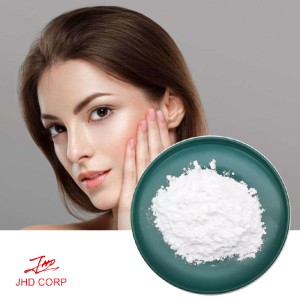What is the mechanism by which glutathione whitens skin?
Glutathione is a tripeptide composed of glutamic acid, cysteine, and glycine, and contains a thiol group, referred to as GSH, which is the collective name of glutathione Glutathione + sulfhydryl group SH. Glutathione comes in many forms, including S-acetyl-L-glutathione.
GSH plays a vital role in the body's antioxidant system, and antioxidants are related to a variety of processes, including aging, melanin synthesis, cell damage, inflammation, etc. Therefore, it is not surprising that GSH has a wide range of physiological effects.
The mechanism by which s-acetyl-l-glutathione powder whitens skin mainly includes the following aspects:
1. Antioxidant effect: Glutathione is a powerful antioxidant that can scavenge free radicals and reduce oxidative stress damage to the skin, thereby preventing the production of melanin and achieving whitening effects.

2. Inhibit melanin synthesis: Glutathione can inhibit the activity of key enzymes in the melanin synthesis process, such as tyrosinase, reducing the production of melanin and making the skin whiter.
3. Promote metabolism: Glutathione can promote skin metabolism, accelerate the shedding of aging cuticles, make the skin smoother and more delicate, and also facilitate the discharge of melanin.
4. Moisturizing effect: Glutathione also has a certain moisturizing effect, which can increase the moisture content of the skin, improve dry skin, and make the skin look brighter.
Amino acid manufacturer recommendations: It should be noted that the whitening effect of glutathione is not achieved overnight and requires long-term use to appear. In addition, individual differences can also affect its effectiveness. When using glutathione or other whitening products, you should pay attention to choosing the right product, combined with good living habits and sun protection measures, to achieve the best whitening effect.















